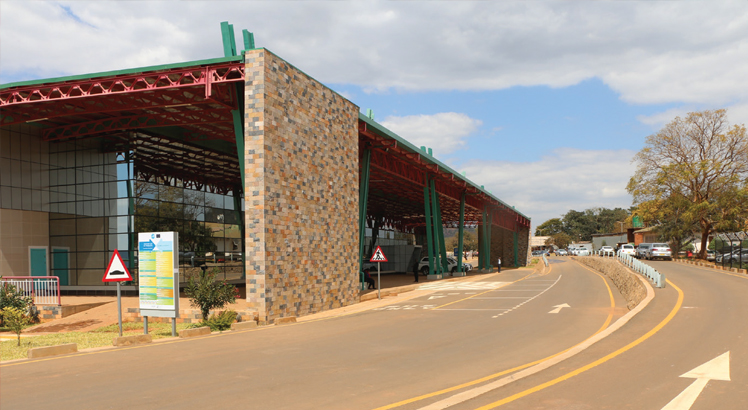2013 import cover estimated at 1.9 months
 Malawi’s import cover is estimated to hit 1.9 months this year, a rise from last year’s 1.1 months indicates an International Monetary Fund (IMF) Malawi Country report released last week.
Malawi’s import cover is estimated to hit 1.9 months this year, a rise from last year’s 1.1 months indicates an International Monetary Fund (IMF) Malawi Country report released last week.
The report indicates that the country’s import cover will in 2014 rise by about 26 percent to 2.4 months, and to then 2.8 months in 2015, a few notches below the recommended three months.
Trending back to 2009, the report indicates that Malawi’s foreign exchange reserves stood at 0.7 month in 2009, doubled to 1.5 months in 2010, then plunged to one month in 2011 before marginally improving to 1.1 months in 2012.
The estimated improvement in the import may ensure that the country gets critical imports and guarantee the stability of kwacha during peak foreign exchange demand period.
Commenting on the projections on the import cover, Reserve Bank of Malawi (RBM) spokesperson Efford Goneka in an e-mail Friday said the central bank is poised to achieve the targets.
“These import cover projections are achievable especially as we expect the economy to stabilise. Already indications are there that things have started to improve and business confidence in the reforms is very important. Currently confidence in the reforms is building up slowly and that should help build foreign exchange reserves for the central bank.
As the economy stabilises, inflation and interest rates will come down and yes monetary policy stance is likely to be relaxed to allow for more growth in the economy. But this will be done when RBM is sure that there are no other risks of inflation turning around,” said Goneka.
Malawi’s gross foreign exchange reserves jumped 31 percent from $240 million an equivalent of 1.26 months import cover on May 3 to $311 million an equivalent of 1.65 months on May 17 as indicated by RBM’s daily money market reports.
In the past weeks, the kwacha has appreciated by about 20 percent thanks to the tobacco marketing season and the tight monetary policy being implemented by RBM.
The central bank has recently been buying foreign exchange from commercial banks due to illiquidity and improved foreign exchange availability.
Malawi liberalised its foreign exchange regime in May last year which saw the RBM devalue the local unit by 49 percent and subsequently floated it. The kwacha and the foreign exchange reserves have been declining since then.





